- Home
- Joe McKinney
Dead City - 01 Page 2
Dead City - 01 Read online
Page 2
I threw the empty canister to the side as I stepped back and stared at the man in amazement. I was riding a wave of adrenaline, and I had to force myself not to charge him and take him down with my bare hands. The air was thick with spray and I didn’t want to get incapacitated by it.
Somewhere in the back of my mind I remembered the pepper spray course they taught us at the Academy. They said three percent of the population is naturally immune to the effects of the spray, but I had never actually seen anybody from that three percent.
The only other people I ever heard of who could shake it off like my guy was doing were meth freaks, and he wasn’t moving like a meth freak.
As I backed up I heard Chris yell. I looked over at him and saw that the plump woman in the spandex had somehow managed to get right on top of him. I was surprised to see him go down. He wasn’t big or anything, but he was in good shape.
She was clawing at him. Her fingernails raked across his face, cutting him, and then suddenly she knocked the gun out of his hand.
He slapped at her with his flashlight, but couldn’t break away completely. Their arms were caught up in each other.
He landed a good jab with the butt of his flashlight and backed away. Then I heard the sharp metal on metal snap of his baton as he extended it and cocked it back over his shoulder.
He swung it down on her knee sharply, and then again, punctuating the second stroke with the sickening crunch of broken bones.
The woman’s whole body reeled from his blows, but she didn’t cry out and she didn’t go down.
He hit her again and again, moving around her, keeping her at arm’s length and striking her legs when she got too close, but no matter how hard he hit her, she wouldn’t go down.
“What the hell!” he yelled. They were moving around each other in a strange, clumsy type of dance, Chris keeping the beat with his baton on her legs. “Why won’t she go down?”
But I couldn’t help him. I had my own problems to worry about.
The man I just pepper-sprayed was still reaching for me. He put out a mangled hand and I dodged underneath it. Before he could turn around, I kicked the back of his knee and pushed him down.
He didn’t even try to break his fall. Didn’t put his hands out or anything.
In the distance I could hear sirens and the uneven rise and fall of the roaring engines, and I knew help was getting close. But there were more people gathering around us now, and as I turned slightly I thought I recognized the people from across the street we had seen as we came in.
That’s when Chris went down.
All his attention was focused on the woman, and he never saw the two men who grabbed him from his right side.
I saw one of them bite him and Chris screamed. He spun around frantically, knocking their hands and faces away as he landed on the ground.
They reached for him and he rolled away. He jumped to his feet with his gun in his hand and fired two quick shots at the man who bit him, nailing him squarely in the chest.
The sound broke the air, but I was the only one who flinched. No one else in the yard even registered the shots.
The man he hit staggered backwards, knocked straight up by the force of the impact, but he didn’t fall.
I watched him shift his weight from one foot to the other in a clumsy, teetering dance and then start to walk forward again.
Chris fell backwards, clutching his neck, the blood already jetting between his fingers. Even as he fell he kept his gun leveled at the man.
I ran over to him and pulled him back.
“He fucking bit me!” Chris shouted.
I put Chris behind me and yelled at the man he had just shot. “Stop! Don’t you fucking move!”
I had my gun barrel trained on his chest and still he kept coming.
I couldn’t help but look at his face. There was nothing behind it, like one of those zombies in the movies. His gaze fell on me, but I knew somehow he wasn’t looking at me. There was no cognition, no intelligence in his eyes. They were clouded over, a mystery.
Chris and I backed into the street, careful to keep our distance.
“Shotguns!” I yelled, and waved Chris toward our cars.
We both scrambled back to the patrol cars, avoiding the people who were coming after us from three sides now.
As we circled around to the trunk of my car I noticed that Chris was having trouble keeping up. He had gone pale, and his breath rattled in his throat, like he was choking on phlegm.
“You won’t be able to shoot,” I told him.
“I’ll cover you. Get the shotgun.”
I popped the trunk and pulled out my shotgun case. The Department gives us the Mossberg 500—a standard, tough-as-nails twelve-gauge pump, built to take a beating and fire just about any kind of shell made.
I dumped six green beanbag shells into the magazine tube and another into the breach. We’re not allowed to use slugs on patrol, only the less-than-lethal beanbag rounds.
The beanbags are still pretty fierce, though. One or two hits at less than ten yards can put almost anybody on the ground and leave them with a couple of broken ribs, no matter how tough they think they are.
I closed the trunk. “You ready?”
Chris nodded, but he looked very sick. “What’s wrong with them? I shot that guy. How come he’s still walking?”
“I don’t know,” I said.
They stumbled closer. Watching them come, I couldn’t shake the feeling that I was looking at a crowd of walking corpses. It was like they had stepped right off the screen of some Hollywood horror film.
We moved out, staying on the driver’s side of our cars and careful to keep the engine block between our positions and the crowd that was still advancing on us through the grass.
The whole time we were doing that I could hear our cover officers getting closer, and from the way the engines and the squealing tires were starting to drown out the sound of the sirens, I figured they were just outside the subdivision.
Help was less than two minutes away.
I pointed the shotgun at the three men who had just entered the circle of street-lamp light next to our cars.
Chris was still standing, but he was bleeding badly. It was running down the side of the car where he was leaning for support.
I focused the shotgun’s ghost ring on a man about ten feet away and yelled, “Get down on the ground!”
The man ignored my order and walked right into the fender of my patrol car. It was like he expected to just walk right through the car.
“Get down on the ground!” I yelled.
He turned and moved around to the front of the car, his hands out in front of him, ready to grab.
When he stepped into the street, I fired.
My first shot went wide of center mass, hitting him in the shoulder. The impact spun him around, and he went down to his knees, but he didn’t cry out. He didn’t even try to clutch at the spot where the beanbag hit him.
I racked the next shell into the shotgun and raised the barrel, ready for another target.
When the man I had just beanbagged stood up, turned, and faced me again, I felt my heart sink down into my stomach.
People just don’t do that.
I’ve beanbagged people before, and nobody has ever just stood right back up, even from a glancing blow.
I searched his face for some indication that I had hurt him, but there was nothing there. There was no emotion, no expression, no content of any kind. He was empty. The eyes seemed to look through me into nowhere.
“Stay down! I’ll hit you again. Stay down!”
I aimed my next shot more carefully. I took my time and centered the ghost ring right in the middle of his chest.
He was less than five feet away when I fired, and he took the full force of what a twelve gauge can do. The blow knocked him backwards, off his feet, and laid him out flat on his back.
At that distance I wouldn’t be surprised if I smashed his sternum into dozens of little piece
s.
I racked the shotgun again. That noise usually clears every room that hears it, but none of those people seemed to care.
They didn’t run, or blink, or look to each other for support. They never paused at all. Their pace never varied, even when they reached out to grab at us. Every move was slow and plodding, like an old woman trying to climb a flight of stairs.
More of them were coming around the front of the car now and I fired two more beanbags as quickly as I could at the first two in line.
The one closest to me went down.
The one behind him staggered back, but didn’t fall.
“Stay back!” I yelled. The air around us was filling with gun smoke, and there were so many of them coming at us that, even with the shotgun, I couldn’t keep them back.
The first guy I bean-bagged walked into my car again. I jammed the barrel into his chest and fired. I fired again as he fell to the ground.
Chris and I backed up.
We were out of shells and the shotgun was useless without them.
I went for my Glock.
“What are they, Eddie?”
“Move! Move!” I said, and pushed Chris along the side of the car. I almost had to carry him to get him to go because he was having trouble supporting his own weight. He couldn’t run at all.
As we reached the back of my car, I froze.
From between my car and Chris’s car another man stumbled into our path.
He turned and faced us and in that one moment I lost all composure. His face and his arms were a mess. There was blood everywhere, and his face was so badly shredded that I could barely recognize his features.
What looked back at me wasn’t a face at all. There was a massive gash starting just below the left eye. It was blood red and protruding from the socket like a squashed grape. The gash opened downward in a jagged triangle that spread around the jawbone, ending at a flap of skin that was caked over with dirt and hanging uselessly from his neck. Gleaming white pearls of teeth showed through the sinews of what remained of his cheek.
His right arm was just a bloody stump, but he reached for me with it like there was still a hand attached.
I lowered my weapon in confusion and disgust, then snapped it back up. “Stop! Don’t move!”
But he kept on moving.
I fired a single shot square into his chest, and he rocked back on his heels, teetering for a moment before regaining his balance.
His gory arm came up again, and he reached for me.
I aimed with both hands.
My gun barked three times, and all three shots slammed into his chest. Again he rocked back, but I couldn’t make him fall.
My training told me that it was body armor—nobody can take that kind of pounding unless they’re wearing body armor.
When he came at me that last time, I aimed for his face and fired a single shot. The bullet struck him in the cheek, and a gory bloom of blood spray and bits of flesh and bone and teeth spread out across the white hood of the police car behind him.
The man flew backwards, landing on the car’s push bumpers. I watched him struggle to regain his feet and more than anything else in the world I wanted to run as fast and as far away as I could. The shock of what I had just seen and the juice pumping through my system made me want to throw up.
I grabbed Chris by the shoulder and pushed our way to his car. I tossed him in the backseat and forced my way back to the driver’s seat.
So many people had gathered around us. They were everywhere, hands tugging at my uniform, pulling me away from the car.
I climbed in and slammed it into reverse.
There were people banging on the doors and windows and the trunk, but I didn’t bother to avoid them.
I stepped on the gas and peeled out, knocking people to the ground as I shot away from the curb. Swerving like a drunk, I kept the pedal on the floor all the way back up Chatterton.
At the top of the hill I was doing maybe fifty miles per hour and was completely out of control. I glanced off two parked cars and careened across the lanes just as two police cars came up on me.
When I saw their strobes I cut the wheel sharply and went into somebody’s front yard. I couldn’t keep the car in a straight line and the front end got away from me. The car spun suddenly to the right, and when the wheels caught, the car shot back toward the street.
We finally came to a stop after hitting a brick mailbox and the back end of somebody’s parked car.
The last thing I remember was the airbag exploding in my face.
Chapter 2
I don’t think I ever totally passed out, but I don’t remember being put in the EMS unit either. When I finally came to, there was an oxygen mask on my face and an EMS tech was trying to put a blood-pressure cuff on me.
I recognized him from some of the calls we’d made together, but I didn’t remember his name. I think it was Robertson or Robinson or something like that.
I coughed hard and couldn’t stop. It felt like I was being ripped apart inside.
“Take it easy, Hudson.”
I reached for the oxygen mask and tried to pull it off my face. He grabbed my wrist so I couldn’t.
“Leave it there.”
“Let me go,” I said, though it came out muffled and slurred through the mask, all in one syllable.
I struggled weakly to sit up. My neck and shoulder felt stiff and I thought I was going to throw up.
“You stay there. Your sergeant said for you to stay put.”
“I’m gonna throw up.”
I got the mask off my face, and this time he didn’t try to stop me. I turned my head to one side and coughed again. My face and eyes were burning, and I figured I must have gotten some of that pepper spray after all.
“Where’s Tompkins?” I asked.
“I don’t know,” he said, still trying to fit my arm with the blood-pressure cuff. “They were taking him Code Three to Downtown Methodist, last I heard. He looked pretty bad when they pulled him out of the car.”
He raised my arm off the gurney. “Come on, now. I’ve got to get this thing on you.”
“What about the people we shot?”
It was urgent. I had to know. I grabbed his arm and squeezed hard. “Tell me!”
He didn’t want to say anything about it, I could tell. He stammered, and when I pressed him even harder he blurted out, “I don’t know. Let go of my arm.”
“Those people wouldn’t go down!” I was almost yelling it at him and I could see him looking at the straps on the gurney next to my arms, wishing now he had put them on me.
“They were zombies!” I said, urgent to get it out. “Like dead people. We shot them, and they wouldn’t go down. They just kept coming!”
“Settle down.” He pushed my shoulder back down on the gurney and tried to hold me there.
“Let go, damn it! Let me go! Get off!”
He tried to hold my shoulders down but I could tell he didn’t want to have to fight me. Firemen don’t like fighting people with guns.
He finally backed off and let me sit up. “I’m going to get your sergeant,” he said. “You wait here. I’ll get him and he can explain it to you. You wait here.”
He opened the side door and left me alone in the back of the unit. I leaned back and put my hands over my face, completely exhausted. The adrenaline had carried me that far, but now I was crashing.
All I wanted to do was keep my eyes closed and my mind empty. But even as the tension was leaving my body, my mind was turning circles around itself, still trying to comprehend the violence of the last few minutes.
I had experienced the same sort of letdown a few times before, after being involved in car chases and fist-fights and stuff like that, but never had the feeling been so strong, so unshakeable.
When I opened my eyes, I forced myself to pause over my surroundings, hoping that I could stop replaying the incident in my mind by engaging myself with something mundane.
It was completely dark outside now
and the only light came from the cheap, city-improvised track lighting along the roof of the ambulance. The halogen glow gave everything a sterile, institutional atmosphere, and the sickening smell of anesthetic and sweat made me feel hostile and unhealthy.
All ambulances are the same.
I’ve been in the back of EMS units hundreds of times before, interviewing people about traffic accidents and shootings and attempted suicides. But that was the first time I had ever really paused to take in the way they made me feel. I knew then that I hated it. I hated it all and all I could do was count the rows upon rows of insulin bottles and saline solution and sterile bandages, and I realized I was getting nowhere sitting there thinking about it. I was closed off and claustrophobic, and I wanted out. I had to get out.
I tried to sit up and just as quickly wished I hadn’t.
My neck and shoulder were throbbing and my eyes and chest still felt like the pepper spray had settled in to stay. All I could do was cough and spit and wait for the burning to go away.
I put my head back down on the gurney and studied the road map of what the next few hours were going to be like.
I had been at other officer-involved shootings, and I had seen firsthand the crap they had to go through.
The officer at the center of it all was always off in his own little world, with everyone else running around him, trying to be cool about it, but still asking each other what had happened and whispering in those hushed tones that they hoped it was a good shooting—for the officer’s sake.
What they meant was they hoped the officer hadn’t screwed up.
It made me wonder if maybe I had screwed up. Was I going to lose my job? I kept seeing the scene play over and over in my mind and I wondered where I had gone wrong.
I knew the detectives and evidence technicians and the supervisors were already on the way. Some of them were probably already doing their thing.
They would start by walking around the place, taking pictures, knocking on doors, and talking to people that may or may not have seen anything. The position of every last piece of evidence, from the placement of shell casings to the length of skid marks and the damage to both our cars would be mapped out with surgical precision, bundled together in a thick manila folder and presented to the disciplinary board for administrative review.

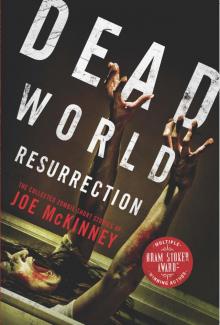 Dead World Resurrection
Dead World Resurrection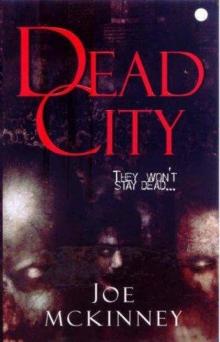 Dead City - 01
Dead City - 01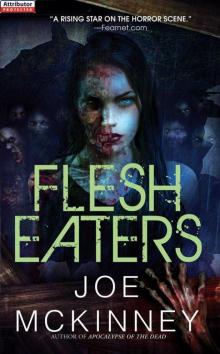 Flesh Eaters
Flesh Eaters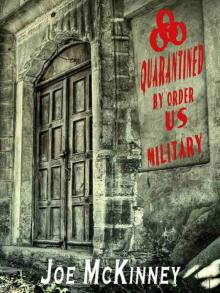 Quarantined
Quarantined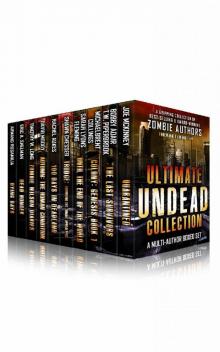 Ultimate Undead Collection: The Zombie Apocalypse Best Sellers Boxed Set (10 Books)
Ultimate Undead Collection: The Zombie Apocalypse Best Sellers Boxed Set (10 Books)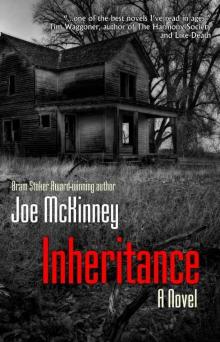 Inheritance
Inheritance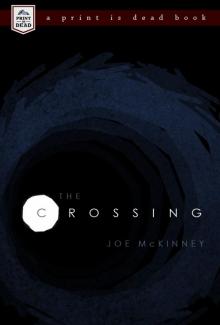 The Crossing: A Zombie Novella
The Crossing: A Zombie Novella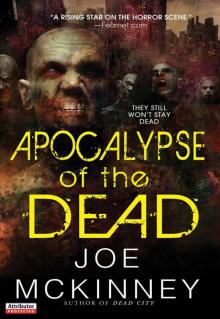 Apocalypse of the Dead
Apocalypse of the Dead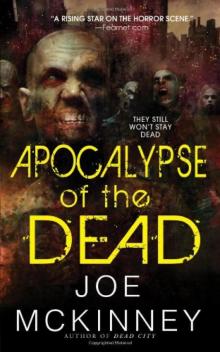 Apocalypse of the Dead - 02
Apocalypse of the Dead - 02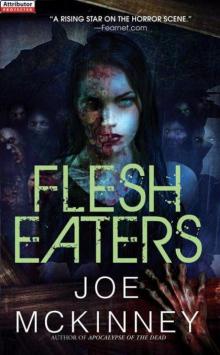 Flesh Eaters - 03
Flesh Eaters - 03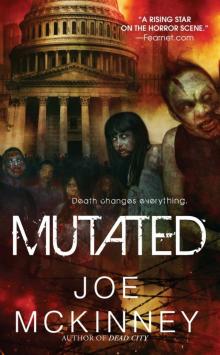 Mutated
Mutated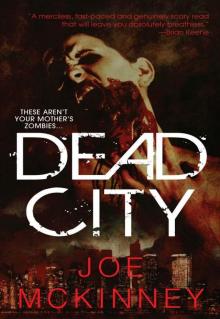 Dead City
Dead City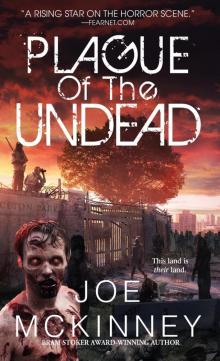 Plague of the Undead
Plague of the Undead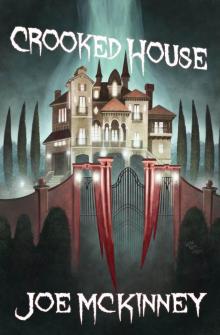 Crooked House
Crooked House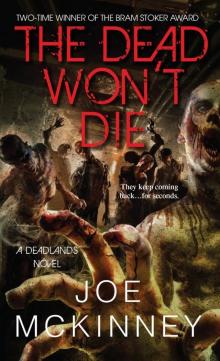 The Dead Won't Die
The Dead Won't Die